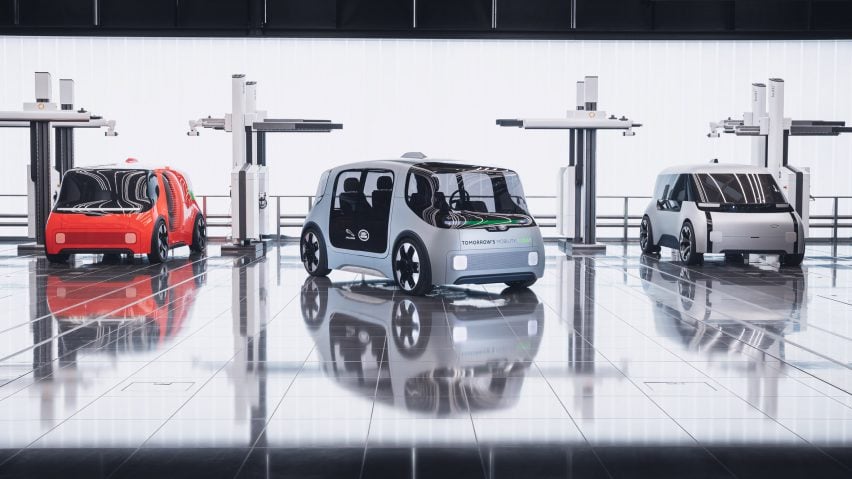Car manufacturer Jaguar Land Rover has released its near-future Project Vector concept for an autonomous and electric multi-use vehicle, which is designed to contribute to safer and less polluted urban environments.
Called Project Vector, the four-metre-long concept car is designed for the city, with a compact design afforded by its electric powertrain that sees its battery incorporated into a flat floor.
The vehicle has been created by Jaguar Land Rover, the company that owns the Jaguar and Land Rover car brands. It has a wide interior cabin space, allowing it to be used for a variety of purposes including private or shared use, as well as commercial deliveries.
The concept is imagined to operate as part of an on-demand, app-driven service within future smart cities according to chief engineer Gero Kempf.
"Future urban travel will be a composite of owned and shared vehicles, access to ride hailing and on-demand services as well as public transport," said the company.
"Our vision shows the vehicle as a flexible part of the urban mobility network that can be adapted for different purposes," it added.
In addition to being carbon neutral, the concept is also driverless, in a bid to lessen the amount of accidents caused and to alleviate congestion.
Like many other driverless, shared-ownership car concepts, including Origin by Cruise, Toyota's e-Palette and Muji's Gacha bus, Project Vector has floor-to-ceiling doors on each side that slide open rather than hinging outwards.
It also similarly has a cuboid-shaped body, closer to a van or bus than a car, with rounded edges to make the design more sleek and contemporary.
Jaguar Land Rover, based in Coventry, England, plans to collaborate with Coventry City Council and the West Midlands Combined Authority to start a mobility service in the city from late 2021.
Designed as part of its Destination Zero initiative to make societies safer and healthier, the Project Vector concept is the company's vision of what this would look like.
"Jaguar Land Rover understands the trends shaping modern societies," said CEO Ralf Speth. "Project Vector shows Jaguar Land Rover as a leader in innovation to make our societies safer and healthier, and the environment cleaner."
"Through this project, we are collaborating with the brightest minds in academia, supply chain and digital services, to create connected, integrated mobility systems – the fundamental building blocks for Destination Zero."
"Project Vector is precisely the brave and innovative leap forward needed to deliver on our mission," he continued.
Another design agency exploring autonomous ride-sharing services is Layer, which recently revealed its Joyn concept that aims to address issues of privacy and security while also offering the environmental benefits of multiple passengers using one vehicle.
The vehicle consists of two rows of eight modular seats set in S-shaped pairs that face opposite directions to maximise each individual's privacy, with "wings" that can be pushed back and forth to open or close the passenger's field of vision.

